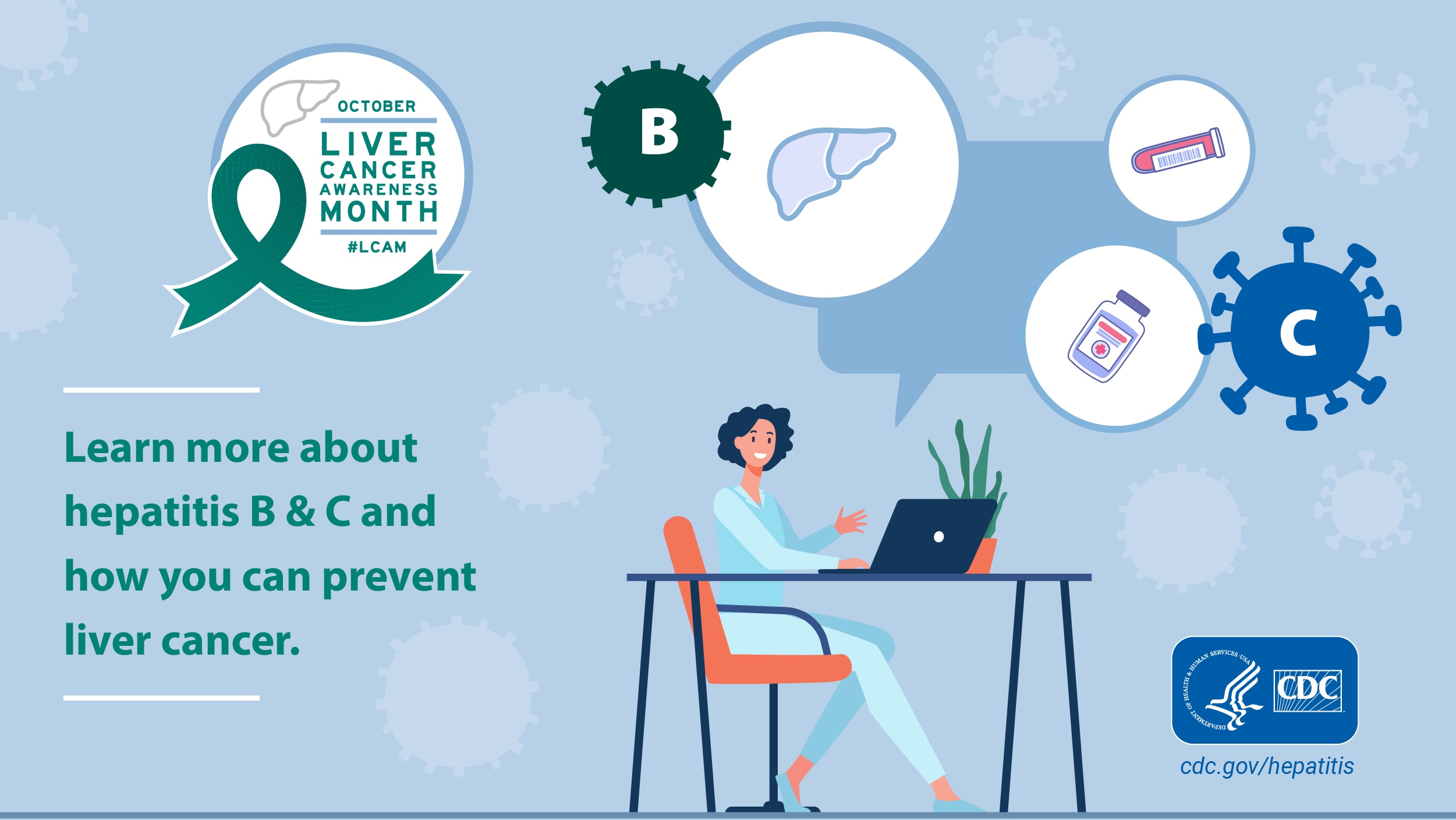
October usually is a time when people think of leaves changing color, scary decorations, and pumpkins. Each October, I also think about liver cancer, because it’s Liver Cancer Awareness Month.
It’s important to recognize this observance, because liver cancer is a leading cause of death in the United States. I work hard every day to reduce the burden of infectious diseases, and most cases of liver cancer are caused by chronic hepatitis B and hepatitis C infections. If we can end these kinds of infections, then we can make a big impact in cases of liver cancer in the U.S. and improve health equity. This is an exciting prospect!
Did you know that:
- communities of color,
- people who use drugs,
- people who are incarcerated, and
- other minority groups
get sick more often with hepatitis B and C?
The Viral Hepatitis National Strategic Plan for the United States: A Roadmap to Elimination 2021-2025 sets objectives and strategies to eliminate the disease by 2030, as well as reduce disparities. For example, the plan outlines ways we can:
- Reduce stigma, unconscious bias, and discriminatory practices,
- Support community leaders and people with lived experience to meet the needs of their community, and
- Develop systems of care that address the whole person.
Our work also supports a Biden-Harris Administration goal of reducing cancer deaths by at least half over the next 25 years. In doing so, we also hope to improve the experience of living with and surviving cancer.
These goals are ambitious, but I believe they are achievable because we have the tools to eliminate hepatitis B and C in the United States. You can prevent liver cancer by getting vaccinated for hepatitis B, getting tested for hepatitis C, and getting medical care hepatitis B or C!
To learn more about liver cancer and ways to prevent hepatitis B and C, I encourage you to visit CDC.gov.



